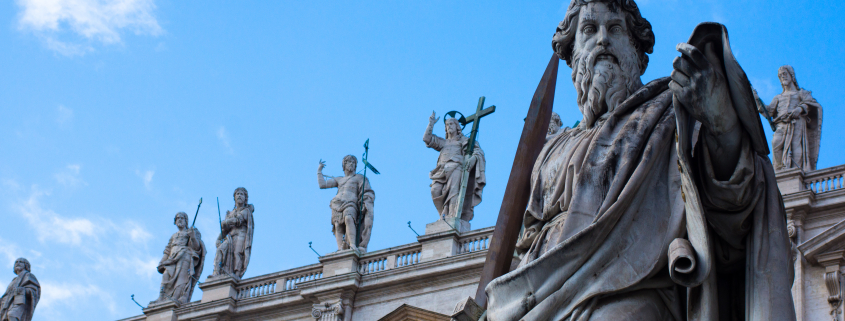Does Religion Produce Intolerance?
Does religion produce intolerance? Looking at the lengthy list of religious wars and other persecutions throughout history, it would be easy to conclude that this is the case. But there is a common logical flaw embedded in this thinking: correlation implies causality. The existence of religion alongside the practice of intolerance does not, in and of itself, mean that intolerance is caused by religion. Perhaps it could just as easily be the other way around: intolerance twists religion. The case for this alternative is strengthened considerably when we look to the actual texts upon which Judaism and Jesus-followers build their common understanding of human relations.
The early chapters of Genesis, the first book of the Bible, tell the story of creation and lay out the basis of a worldview that Judaism and Christianity hold largely in common. This account is in many ways similar to other creation stories that circulated in the ancient Mideast. Genesis, however, contains two notable, powerful differences. First, it reveals the Creator as the one true God who also acts as humanity’s Redeemer—first on behalf of the children of Israel and then on behalf of the rest of humanity.
The second way that Genesis differs from its neighbors is in its depiction of human beings. Rather than depicting them as poor, weak mortals created to gratify the whims of a collection of gods and goddesses who often act like unruly teenagers, Genesis presents a uniquely high view of human nature and its role in the creation God has made. As the Scripture says:
Then God said, “Let us make man in our image, after our likeness And let them have dominion over the fish of the sea and over the birds of the heavens and over the livestock and over all the earth and over every creeping that that creeps on the earth.” So God created man in his own image, in the image of God he created him; male and female he created them (Genesis 1:26–27).
There are a couple of features worth exploring here. For one thing, humanity, said to be the image of God, is composed of male and female. This bestows equal and high dignity upon all human beings, regardless of gender, ethnicity, or any other factor. This distinction is not given to any other living beings, showing that humans have a unique relationship with God. We are made in his image. In any event, the love of God for humanity is an element of creation that causes the biblical account to stand apart from the creation myths of other ancient contemporary cultures.
The word for image also bears examination. It could also be rendered, “representation.” In the ancient world, a distant king would have an image of himself erected in a conquered territory as a symbol of his authority. It is not a great a stretch to understand humanity’s role as such an image: an honored steward, God’s representative “on site” to nurture creation, draw sustenance from it, and live in harmony with it and one another in loving obedience to our Creator.
Of course, we have strayed quite far from this rosy picture. But not so far that it does not still resonate within us on some level. However, we cannot deny that our intimacy with God has been replaced by estrangement and this, in turn, has left us lost, frightened, and at war with ourselves and one another.
Intolerance for others stems from self-hatred turned outward. Have you ever met a truly happy bigot? Unfortunately, some have behaved like bullies and worse, particularly towards the Jewish people, twisting the words of the Prince of Peace to justify their heinous acts. Intolerance backed by force has caused untold harm. But the cure for intolerance is not tolerance. The cure for intolerance is love. Tolerance may be the first, weak step toward that, but tolerance says, “Keep your distance.” Love says, “Let us approach each other.”
We are called to hate sin but to love the sinner for whom, we must constantly remind ourselves, Messiah also died and rose again. We must never forget that all of us are made in the image of God, bestowed with a high dignity by him, and our attitudes and actions towards each other must reflect this glorious truth.



